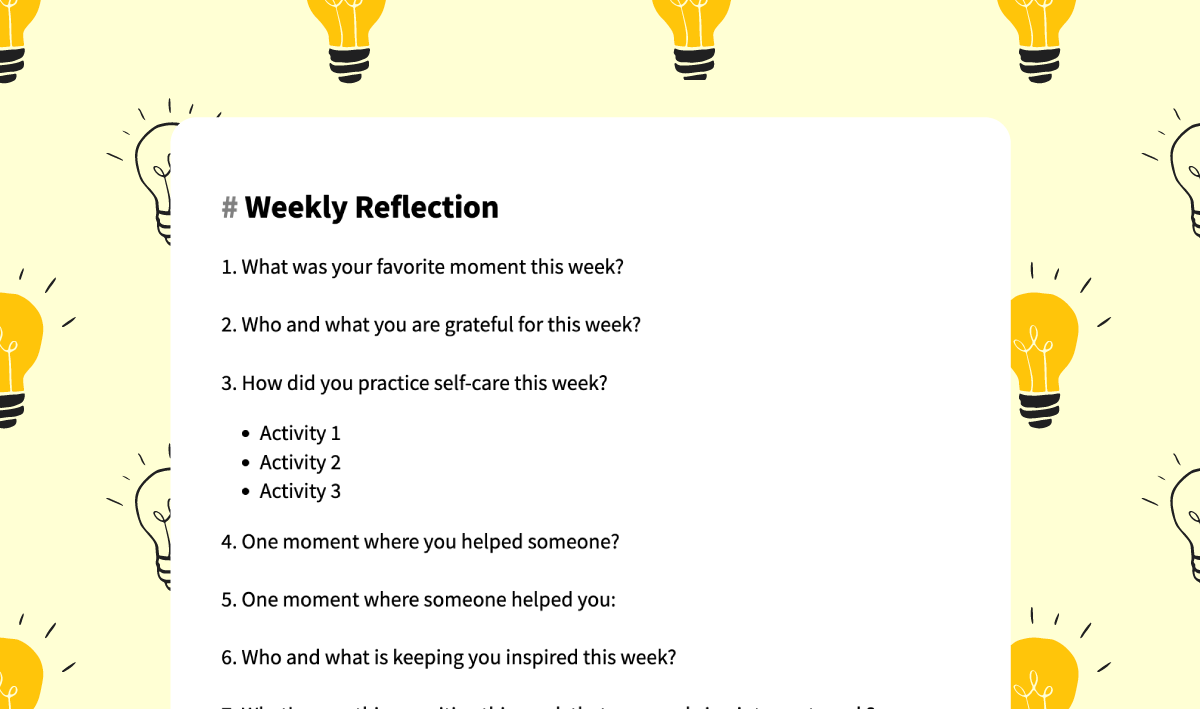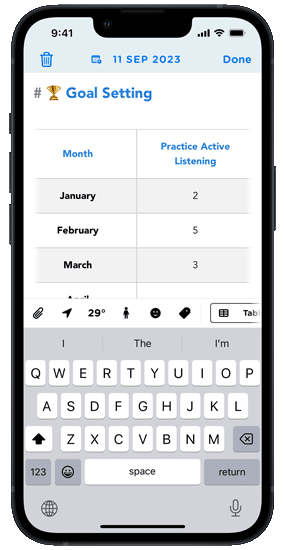The Coaching Habit: Unlocking the Power of Asking Questions
"The Coaching Habit" by Michael Bungay Stanier is a practical guide for leaders to adopt a coaching approach as a way to empower and engage team members, foster critical thinking, and drive meaningful results. Here are some key strategies from the book to help you develop your coaching skills.

Do you ever find yourself getting caught up in providing immediate solutions to your team's challenges? As leaders, it's natural to want to jump in and fix problems. However, in the book "The Coaching Habit" by Michael Bungay Stanier, he introduces a transformative approach to leadership through the power of coaching conversations. This book provides valuable insights into time-effective coaching techniques, empowering leaders to ask the right questions and create a collaborative and growth-oriented environment. In this blog post, we will dive into the key concepts and benefits of incorporating the coaching habit into your managerial repertoire.
1. The Power of Habit
Incorporating Coaching As A Regular Habit
One of the core messages from Stanier's book is the importance of adopting a coaching habit, not only when addressing challenges but also in day-to-day conversations. By making powerful questions a habit, leaders can foster a coaching culture within their teams, amplifying the chances of success and personal growth for all members involved. Consistently asking "What's on your mind?" or "What's the real challenge here?" opens up opportunities for deeper discussions and insights.
Creating A Coaching Culture Within Teams
By embracing the coaching habit, leaders can shift their focus from problem-solving and providing immediate solutions to encouraging their members to think critically and independently. This helps team members develop their problem-solving skills, gain confidence in their abilities, and take ownership of their tasks and responsibilities.
Also by adopting a coaching habit and using powerful questions regularly, leaders can strengthen their relationships with their team members. Through active listening and curiosity, they can create a safe and supportive environment where members feel valued and encouraged to express themselves openly. This fosters trust and collaboration, enabling teams to work together more effectively towards shared goals.
Overall, the power of habit lies in its ability to transform the way leaders approach conversations and interactions with their teams. It enables them to shift from a directive leadership style to a more empowering and growth-oriented approach. By consistently engaging in coaching conversations, leaders can unlock the full potential of their team members, drive engagement, and foster a culture of continuous learning and improvement.
2. The Seven Essential Questions
Stanier presents a framework of seven key questions that can transform coaching conversations and provide exceptional results. He introduces the concept of seven essential questions that are intended to guide coaching conversations and elicit thoughtful responses from individuals. These questions are designed to be simple yet powerful, aiming to create meaningful dialogue and promote self-reflection. Here are the seven essential questions presented in the book:
1. The Kickstart Question
"What's on your mind?"
This question allows the individual to share what's currently occupying their thoughts or concerns. It helps to create an open space for discussion and sets the stage for a coaching conversation.
Photo by Daria Pimkina / Unsplash
2. The "AWE" Question
"And what else?"
This question encourages individuals to dig deeper and explore additional possibilities or perspectives. By asking "And what else?" repeatedly, it helps to uncover more insights and potential solutions.
3. The Focus Question
"What's the real challenge here for you?"
This question helps individuals identify and articulate the core issue or challenge they are facing. It prompts them to think beyond the immediate problem and consider the underlying factors that need to be addressed.
Photo by Philipp Mandler / Unsplash
4. The Foundation Question
"What do you want?"
This question encourages individuals to clarify and articulate their desired outcomes or objectives. It promotes goal-setting and helps to establish a clear direction for problem-solving or decision-making.
5. The Lazy Question
"How can I help?"
This question allows managers or leaders to offer support and assistance in a way that aligns with the individual's needs. It empowers the individual to voice their requirements and facilitates a collaborative approach to problem-solving.
6. The Strategic Question
"If you're saying yes to this, what are you saying no to?"
This question encourages individuals to consider the trade-offs and potential consequences of their choices or commitments. It helps them evaluate priorities and make informed decisions.
7. The Learning Question
"What was most useful or valuable for you?"
This question promotes feedback and reflection on the coaching conversation. It allows individuals to identify the key takeaways or insights gained, fostering a culture of continuous learning and growth.
Photo by John Schnobrich / Unsplash
These seven essential questions provide a framework for effective coaching conversations, helping managers and leaders guide their teams towards greater clarity, self-awareness, and problem-solving abilities. By incorporating these questions into their coaching approach, individuals can enhance their ability to support and develop their team members.
3. The Benefits of Adpoting a Coaching Habit
Stanier highlights numerous benefits of incorporating coaching into leadership and managerial practices. By adopting a coaching habit and utilizing powerful questions, leaders can unlock the potential of their teams and drive meaningful results. Here are some key benefits of coaching discussed in the book:
Promoting Critical Thinking And Problem-Solving
Coaching encourages individuals to think critically, explore alternatives, and find their own solutions. By asking powerful questions, leaders can shift away from providing immediate answers and instead guide members to tap into their problem-solving capabilities. This approach empowers team members to take ownership of challenges, fostering a sense of autonomy and self-reliance.
Empowering And Engaging Team Members
Coaching conversations create a collaborative and supportive environment that encourages active participation from team members. By involving members in problem-solving and decision-making processes, coaching cultivates a sense of ownership, motivation, and commitment. This increased engagement leads to enhanced productivity and a stronger sense of satisfaction in the workplace.
Photo by Jason Goodman / Unsplash
Building Trust And Strong Relationships
Building Trust and Strengthening Relationships: Coaching conversations, rooted in active listening and curiosity, help to build trust and rapport between leaders and team members. By valuing individuals' perspectives, encouraging open dialogue, and providing support, leaders can create a safe space for team members to share their thoughts, concerns, and aspirations. This fosters stronger relationships, enhances communication, and promotes a sense of psychological safety within the team.
Photo by Hannah Busing / Unsplash
Developing Team Members' Skills and Growth
Coaching facilitates personal and professional development by encouraging members to reflect on their experiences, identify areas for growth, and set meaningful goals. Through powerful questions, leaders can help team members gain insights into their strengths and areas for improvement. This ultimately contributes to their overall skill development and career progression.
Creating a Continuous Learning Culture
The coaching habit introduced by Stanier fosters a culture of continuous learning and improvement within an organization. By consistently engaging in coaching conversations, leaders demonstrate their commitment to personal and professional growth. This encourages team members to embrace a growth mindset and seek opportunities for learning and development.
4. Developing Your Coaching Skills
In "The Coaching Habit" by Michael Bungay Stanier, the author not only presents the concept of coaching but also provides guidance on developing coaching skills. Stanier emphasizes the importance of active listening, curiosity, and mindfulness to enhance coaching effectiveness. Here are some ways to develop coaching skills as outlined in the book:
Practice Active Listening
Actively listening is a foundational skill in coaching. It involves giving your full attention to the speaker, observing their body language, and refraining from interrupting or jumping to conclusions. By practicing active listening, you create a safe space for team members to express themselves fully and feel genuinely heard.
Photo by LinkedIn Sales Solutions / Unsplash
Cultivating Curiosity
Curiosity is a powerful tool in coaching. The more curious you are about an individual's thoughts, ideas, and perspectives, the deeper the conversation can go. As a coach, ask open-ended questions and explore multiple viewpoints. Encourage team members to dig deeper and challenge their assumptions. Curiosity drives insightful conversations and unlocks new insights.
Be Mindful
Mindfulness, in the context of coaching, means being fully present and aware in the coaching conversation. Stay focused, observe non-verbal cues, and listen deeply. Mindfulness allows you to recognize coaching opportunities even in brief interactions and respond thoughtfully. Developing mindfulness helps you become more attuned to the needs of team members and create meaningful coaching moments.
Photo by Motoki Tonn / Unsplash
Reflect
After engaging in coaching conversations with team members, take some time to reflect on the key insights and discoveries from the conversation. Use your journal to capture your thoughts, observations, and reflections. Document the progress made, the challenges encountered, and the lessons learned. This reflection process helps you internalize the coaching habit and reinforce your coaching skills.
If you're looking into getting into daily reflection journal as a habit, and you have never journaled regularly before, you can consider downloading a digital journaling app like Journey with weekly reflection template to help you get started and guide you along.

Seek Continuous Learning By Creating a Learning Log
Embrace a growth mindset and be open to learning. Continuously seek resources, attend workshops, or engage in training programs focused on coaching skills. By investing in your own development, you enhance your coaching abilities and stay updated on the latest techniques and approaches.
Use your journal as a learning log, noting down key takeaways from the book. Summarize the main concepts, strategies, questions, and examples presented by Stanier, and add your own thoughts and reflections. This log can serve as a useful reference point as you continue to develop your coaching skills and revisit the principles and techniques outlined in the book. Get a learning log journal template in Journey to get started.
Track Your Progress
Keep a journal to track your progress as you develop your coaching skills. Set goals for yourself based on the strategies outlined in the book and regularly evaluate your progress. Write down specific incidents or conversations where you successfully incorporated the coaching habit and the impact it had on the individuals involved. This tracking process allows you to document and celebrate your growth as a coach.

By incorporating these strategies into your habits, you can develop your coaching skills, enhance your effectiveness as a coach, and create a positive coaching experience for your team members. Remember that developing coaching skills is an ongoing process that requires practice, reflection, and a genuine desire to help others grow and succeed.
Michael Bungay Stanier's "The Coaching Habit" equips leaders with a practical and effective toolkit for impactful coaching conversations. By adopting a coaching mindset and integrating powerful questions into daily interactions, managers can inspire their teams to uncover their full potential, foster collaboration, and drive results. These coaching habits not only benefit individual team members but also cultivate a thriving organizational culture rooted in continuous learning and growth. So, let's embrace the coaching habit and unlock the power of asking questions to transform the way we lead and inspire others toward success.










